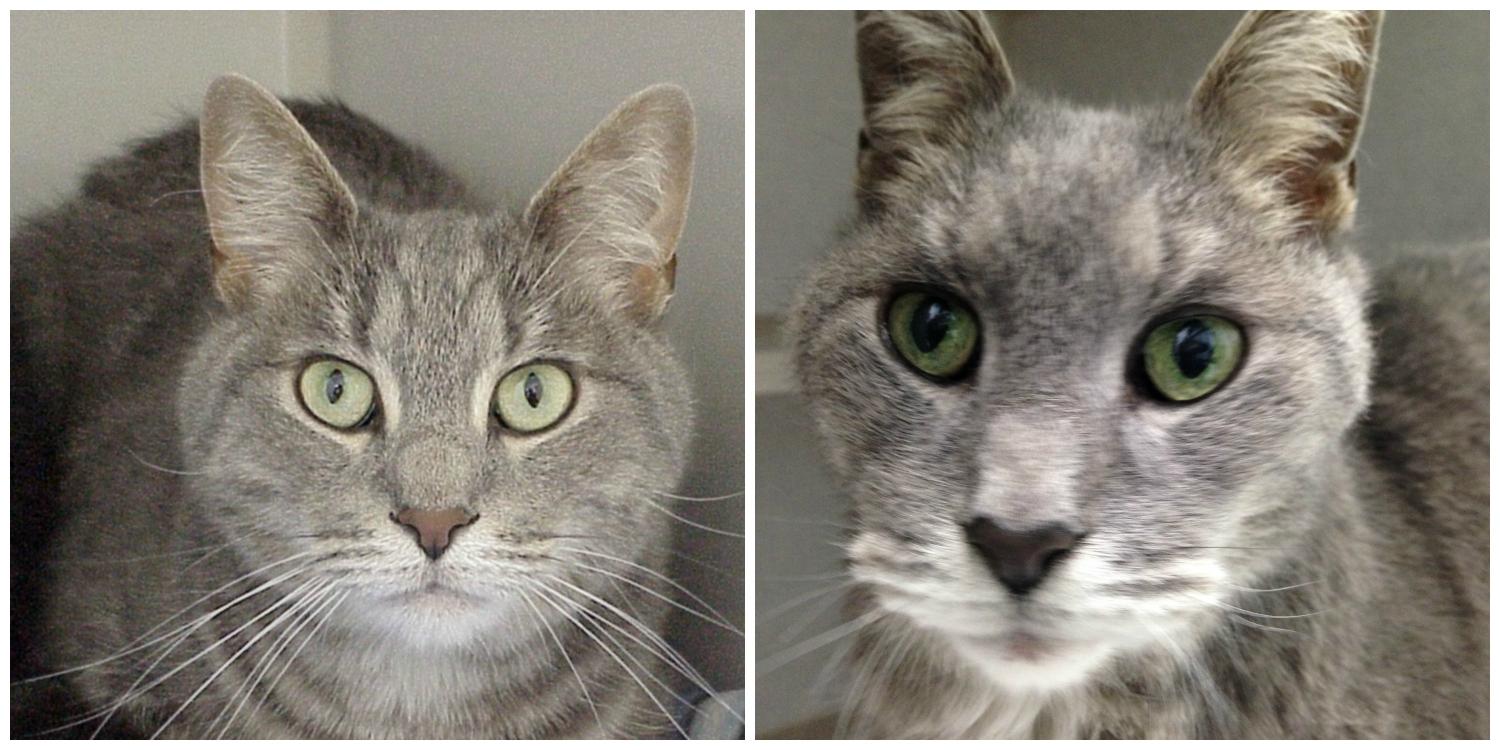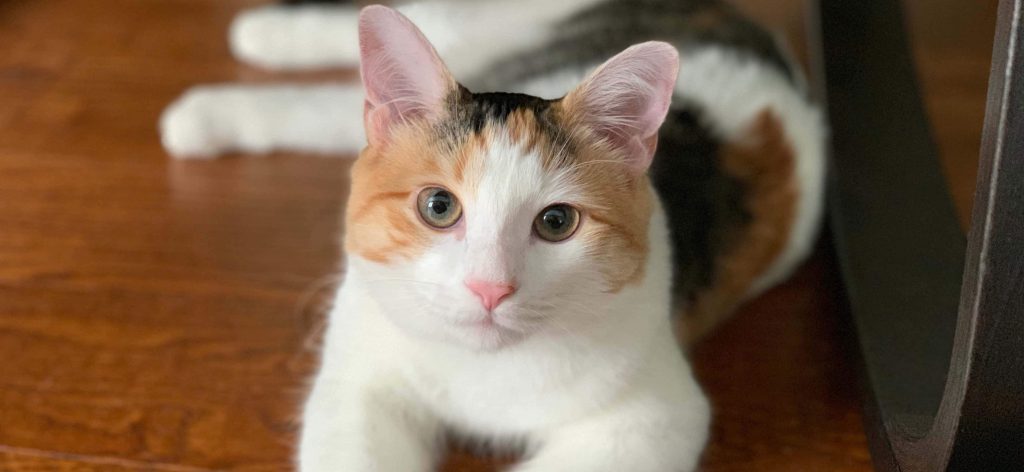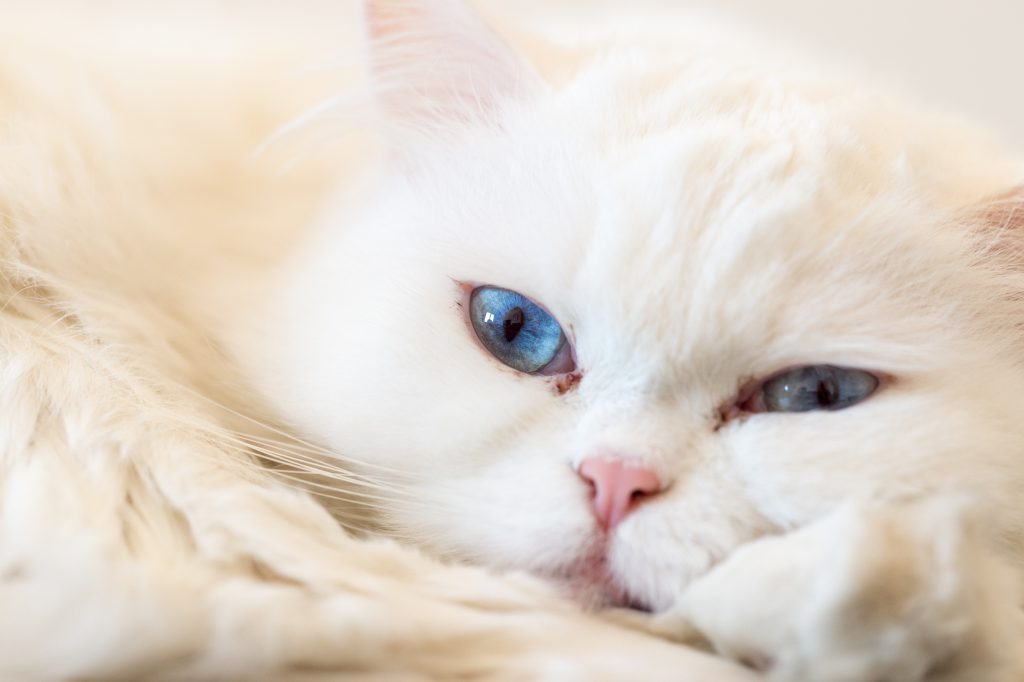
Hyperthyroidism Disease In Cats: Signs ,Symptoms And Treatment
Hyperthyroidism is a common problem in older cats. Also known as hyperthyroid disease, it is caused by the enlarging of the thyroid gland and the increased production of thyroid hormones. Usually, this is caused by a benign tumor on one or both of the glands. Though these tumors can be cancerous, the chance of a tumor being malignant is very low: 2-5%.
Signs and Symptoms

Cats very rarely show all the symptoms of hyperthyroidism, but one or two of the symptoms may be severe enough to warrant a trip to the vet. Cats with hyperthyroidism often have an increased appetite but are losing weight. Some may become irritable or nervous. It is not uncommon for cats with hyperthyroidism to look as though they haven’t groomed themselves in a while. Vomiting, diarrhea, and weakness are also common, but any cat showing these symptoms for more than 24 hours should see a Vet. Never allow your cat to vomit for more than 24 hours as this can cause severe dehydration and be a sign of an even more serious problem.
Diagnosis and Treatment

Your vet will perform a physical exam, palpitating the neck to feel for the enlarged gland or glands. They will check heart rate and blood pressure as well and perform a CBC, a type of blood test that will check for a variety of things including the thyroid levels. Hyperthyroidism can mimic other diseases such as chronic renal failure (CRF) so it is important that this test is performed. The CBC will also show other system functions that are important when choosing a method of treatment.
There are three common treatments for cats with hyperthyroidism: Medication, surgery, and radiation. Each of them has pros and cons, but hyperthyroidism is not a life-threatening illness, so caregivers have some time to make the decision on which treatment is best.
Medication is the most common and financially easiest option. The most commonly prescribed drug is methimazole which is often prescribed once or twice a day for the remainder of your cats’ life. They should receive regular blood checks and exams to monitor hormone levels and check that your cat is not suffering from medication-related side effects. If your cat has kidney or heart problems, this is the only treatment option for them, it is relatively inexpensive, and it is non-invasive. Side effects can include vomiting, fever, anemia, and lethargy. More serious side effects include a rash, liver damage and bone marrow suppression though these are rare.

Surgery is often effective but is best performed by a specialist in the field. It is often the choice when only one gland is involved and scans are usually performed beforehand to check the extent of the diseased tissue and to locate any thyroid tissue growing elsewhere that may exclude surgery as an option. It is absolutely necessary that an exam and workup be done to exclude hypertrophic cardiomyopathy- a condition commonly seen with hyperthyroidism. Cats must also remain on thyroid medication for 15 days prior to the surgery so that kidney function can be retested as hyperthyroidism can often mask renal failure. Surgery eliminates the need for medication, however, it comes with risks. It is possible to damage the parathyroid gland, which can cause hypothyroidism, is certainly more expensive and comes with all the inherent risks of placing an older cat under general anesthetic.
Radioiodine treatment is a relatively new treatment choice, though it appears to be gaining in popularity where available and where owners can afford to choose it. It involves a single, under the skin (or subcutaneous) injection of radioactive iodine (R131). This radioactive iodine then seeks out and destroys all the diseased tissue without harming normal tissue. The cat must remain in the hospital for up to two weeks, depending on state law, until its radioactive levels are acceptable. Owners are able to visit, but will only be able to view their pet through a lead window. However, for this small inconvenience and separation, pets and owners are often provided with a permanent cure and no serious side effects. Cats with hypertrophic cardiomyopathy, kidney problems, diabetes or other serious conditions are not eligible for this form of treatment. It is also nearly as expensive as surgery and can also cause hypothyroidism.
